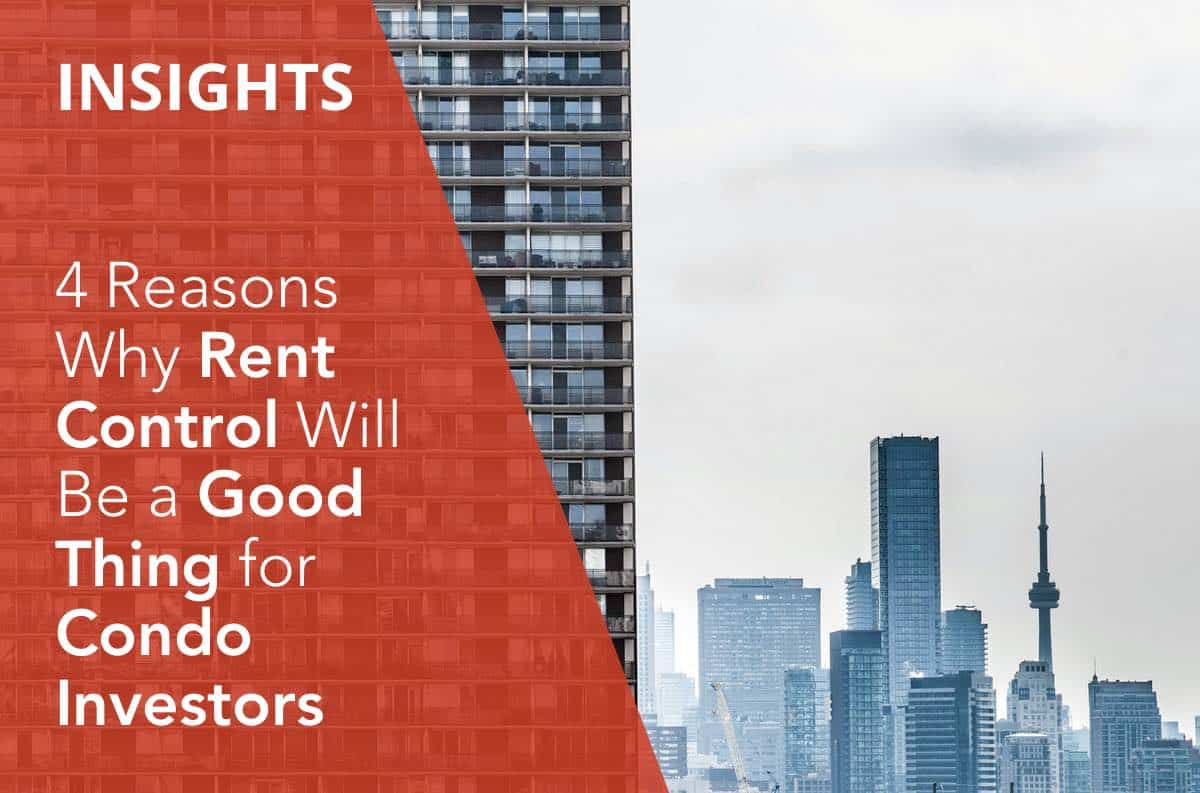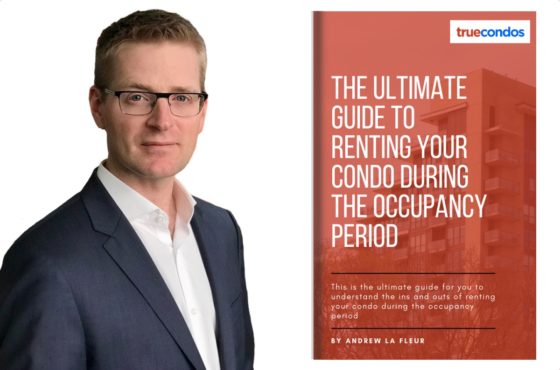4 Reasons Why Rent Control Will Be a Good Thing for Condo Investors
 The title of this blog post probably makes no sense to you. Isn’t rent control a bad thing? Is this article just click bait?
The title of this blog post probably makes no sense to you. Isn’t rent control a bad thing? Is this article just click bait?
No. Rent control is honestly going to be a great thing in the long run for condo investors and I want to explain 4 reasons why this is true, but first let me give the caveat that
In the short term, there will be some pain with rent control. I’m experiencing this myself right now. One of my condos that I have leased out right now is about 8% below current market value.
8% doesn’t sound like a lot, and truth be told it’s not a lot, but normally I would just increase the rent by 8% and get it back to market value. If I have a great tenant, maybe I only increase it by 5% or 6% to keep them happy while at the same time protecting my investment.
Now under the new rent controls in Ontario, I can only increase the rent by the amount set out by the province every year which is tied to inflation. Right now that number is 1.5%. So if I increase the rents on this unit by 1.5%, then I’m still about 6.5% below current market value.
Am I worried? Not really. I know that the tenant has already been in the unit for 1 year, and likely they will only stay another 1-2 years at the most. So losing out on a couple percentage points for a year or two is not going to cause me to sell this asset which is cash flow positive anyway and appreciating nicely every single month.
However, the reality is that the Wynne government’s decision to institute rent control has cost me and thousands of other investors like me real money – in the short term.
But in the long run, I know that this form of government intervention in a free market will do the exact opposite of what they think it will do. This will not result in people paying lower rents in Toronto – well, a few people will pay lower rents, but most people will pay higher rents, much higher in fact.
Funny enough, if you look back at just about every single government intervention into the housing market over the last 10 years of the current boom, every single time they have intervened the exact opposite of what they said was going to happen has happened. I believe it will be no different with the new rent control rules.
Let me give you 4 reasons why rent control is not something that investors need to worry about and in fact will have a positive impact on most condo investors:
RENT CONTROL WILL LEAD TO LESS COMPETITION
There is no question that rent control will scare away many developers from building new rental buildings.
Already we are hearing many developers who had rental buildings in their pipeline talking about converting them into condo instead.
After decades of virtually no purpose-built rental buildings being added to the GTA, finally we were starting to see a healthy number of new buildings in the proposal stages in just the last 2 years. Why? The economics of building a rental building were finally there for institutional investors.
Now that has all changed. Expect much less new purpose built rental supply to be added to the market in the next few years.
All this is good news for individual condo investors who will be facing less new rental competition in the future.
Bottom line: rent controls will reduce future supply and lead to increased prices for new rental stock.
RENT CONTROL WILL CREATE A 2-TIER SYSTEM IN TORONTO
Over the long term, renters living in cities with rent control tend to fall into 2 categories: those who are locked into long term rental agreements that are way under market value and therefore never move, and those who are entering a market with very little supply and therefore pay sky high prices for accommodation.
As pre-construction condo investors, when your condo is completed and ready for renting, it comes vacant to you by definition. So you will benefit from being able to set the rent from day 1 at whatever rate the market will bear.
Think about it, it will become harder and harder for investors in Ontario to buy property that is not already tenanted. Buying pre-construction in the long run will be a huge advantage because unlike any other property type, it allows you to set the rents from the start.
Bottom line: In the long run, rental rates in Toronto for new stock will be much much higher than it is today.
SMALLER UNITS HAVE HIGHER TURNOVER
Another obvious reason why rent controls will not hinder condo investors is that most condo investors are buying small units which have higher turnover rates.
While there has been a surge in the last year of investors picking up larger units as low rise housing price increases have created a new level of demand for 2 and 3 bedroom units, the reality is that the majority of condo investors now and in the future will continue to focus on smaller units – studios and 1 bedrooms.
Why? Affordability. Most individual investors simply cannot afford to purchase a 2 or 3 bedroom unit. Condo builders need to hit 70% sold before they can get financing to build their buildings, therefore most units in new buildings moving forward will continue to be of the smaller variety.
Bottom line: smaller units will have higher turnover which will let investors capture market rents every couple years – the same as it is today.
CONDOS ARE THE MOST LIQUID ASSET
Unlike houses, condos have a fairly short life cycle. Once a condo is considered ‘old’ it loses its desirability as a rental destination, appreciation rates slow down, maintenance fees tend to become a burden, and repairs start to be needed.
For most condo buildings this happens at around the 7-10 year point after construction.
My rule of thumb for when to sell a condo investment is at about the 7 year mark.
If you are not achieving the rental income that you desire on your condo investment because of rent controls, it’s relatively easy to sell that asset and reinvest into something else. The lower than market rents does not negatively affect the resale value.
On the other hand, if you own an entire rental apartment building with hundreds of units and you are below market value, that is a serious drag on your ability to sell the asset at its full potential value. Another reason why rent controls will negatively affect future purpose built rental supply.
Bottom line: condo investors face little risk with being locked into below market rents because it is very easy to sell and re-invest.



